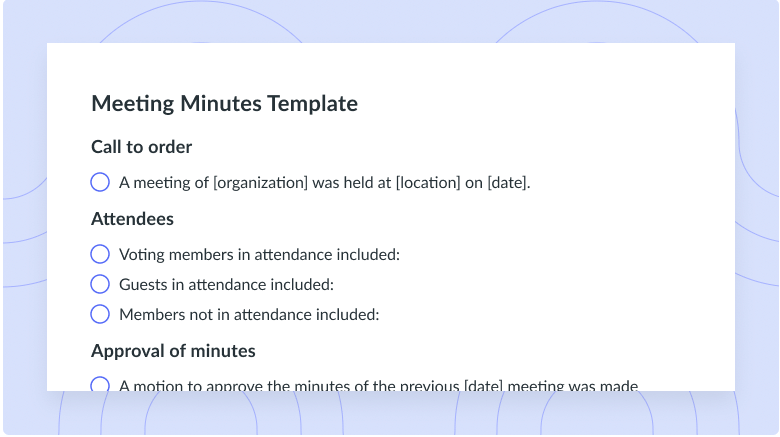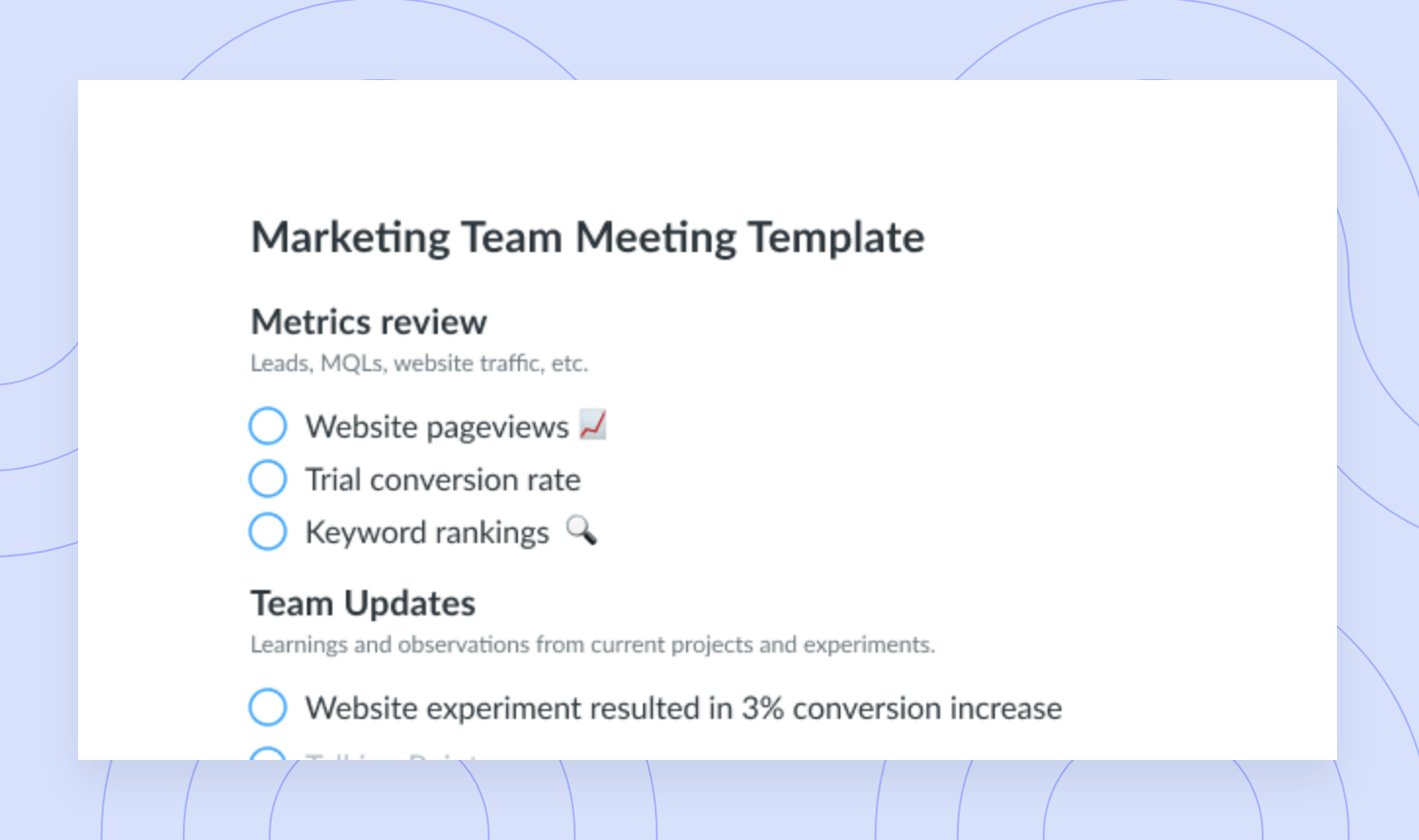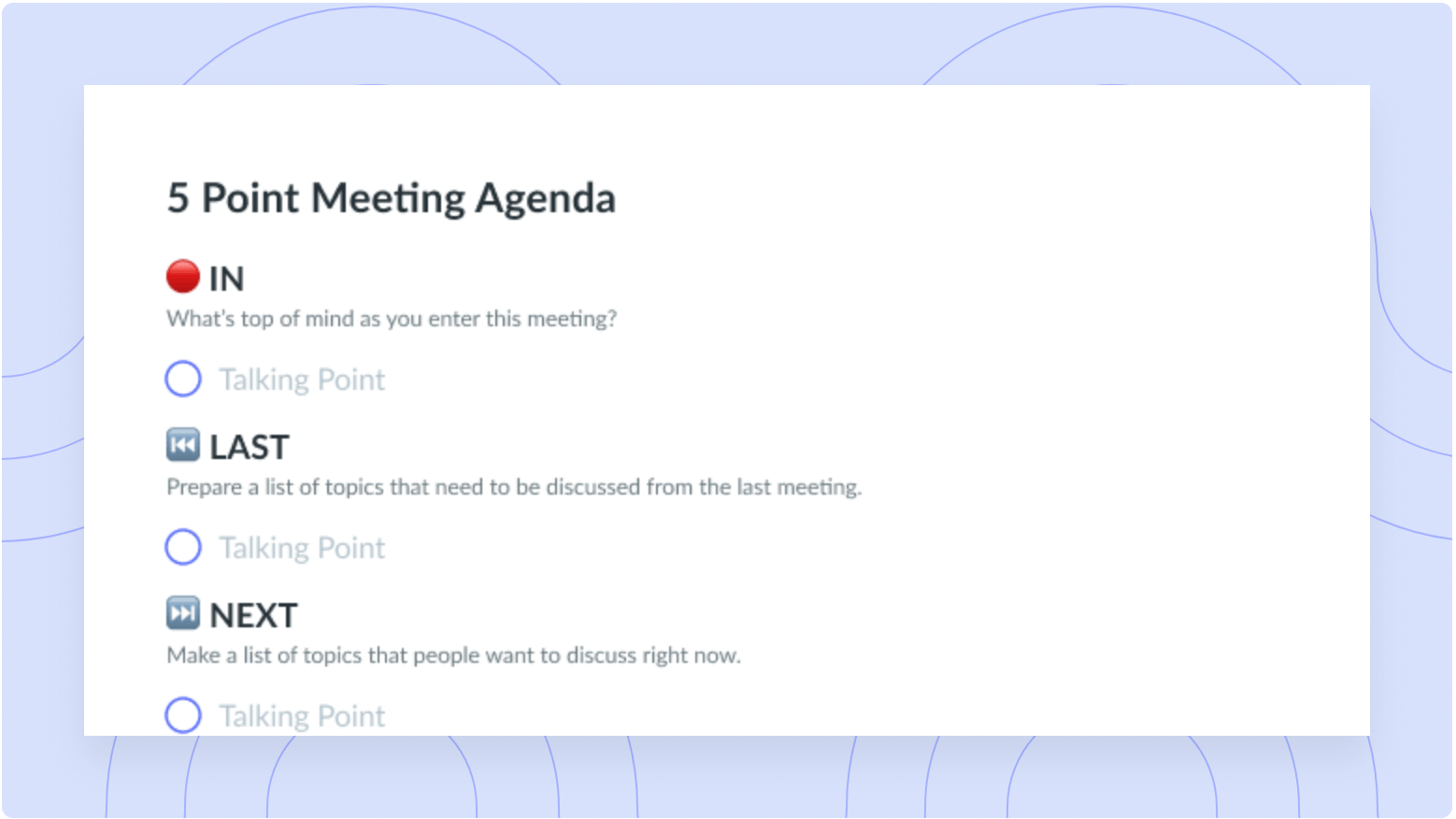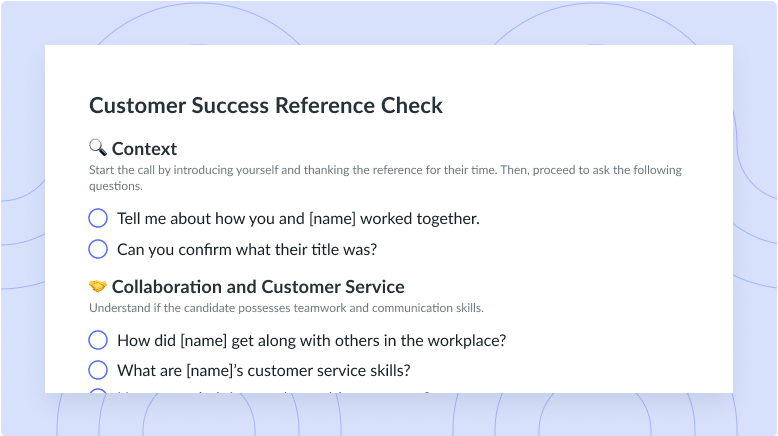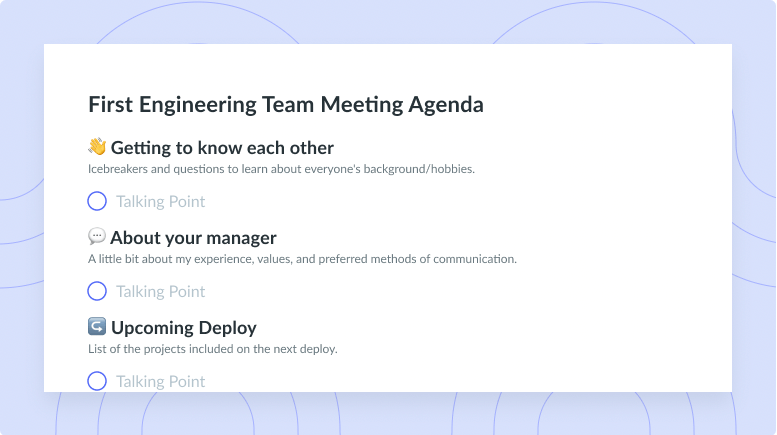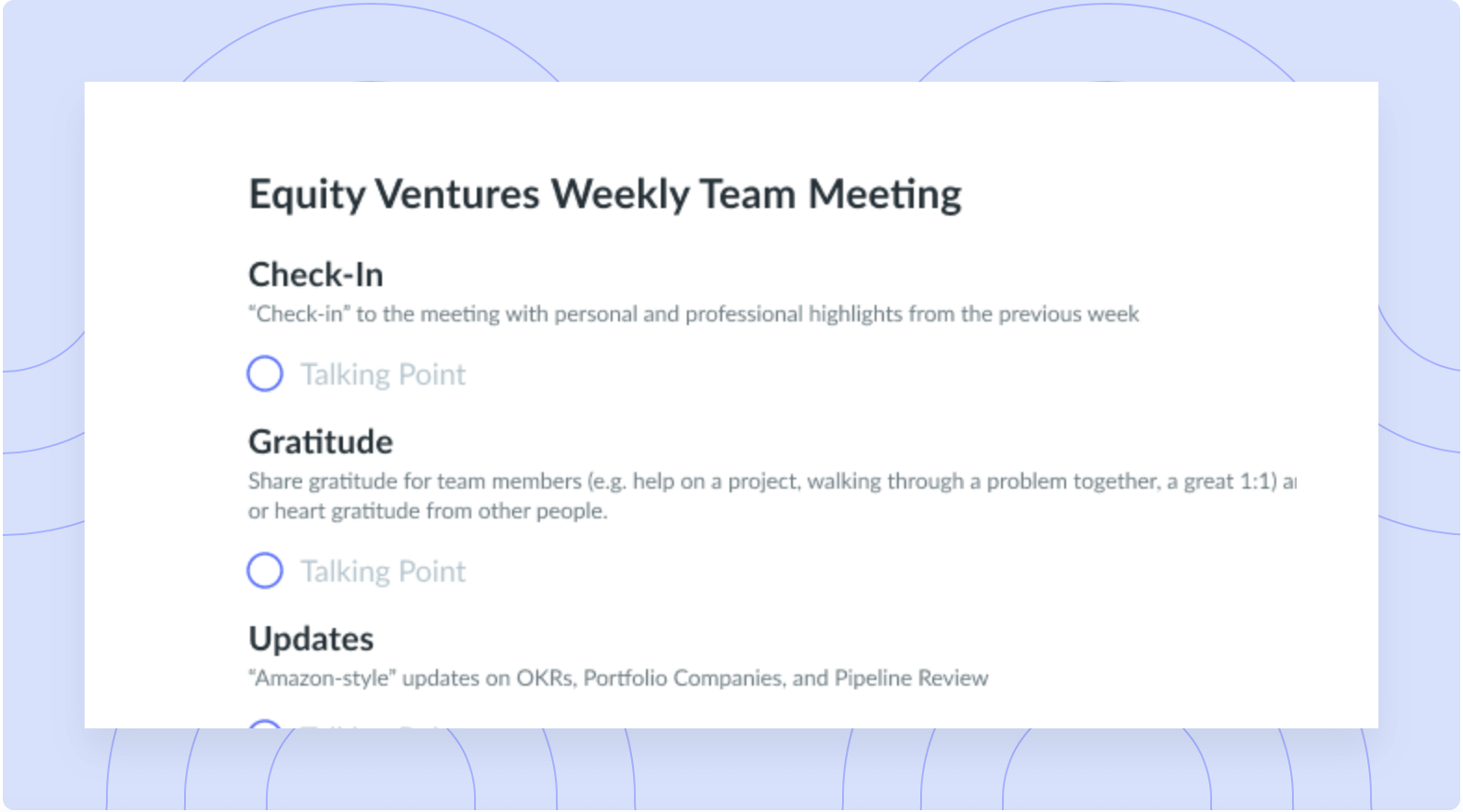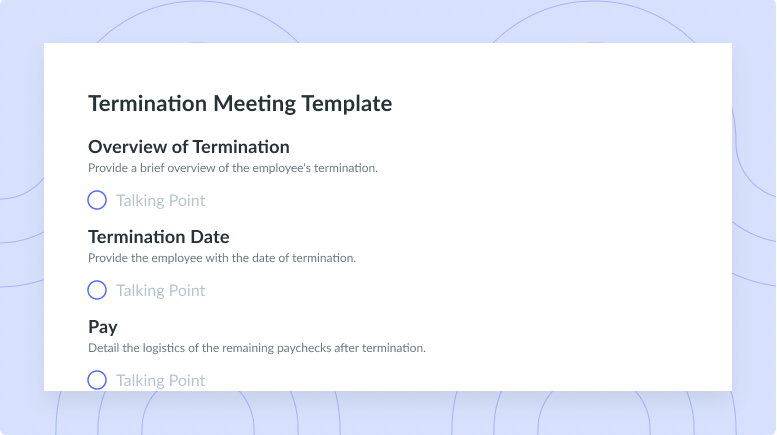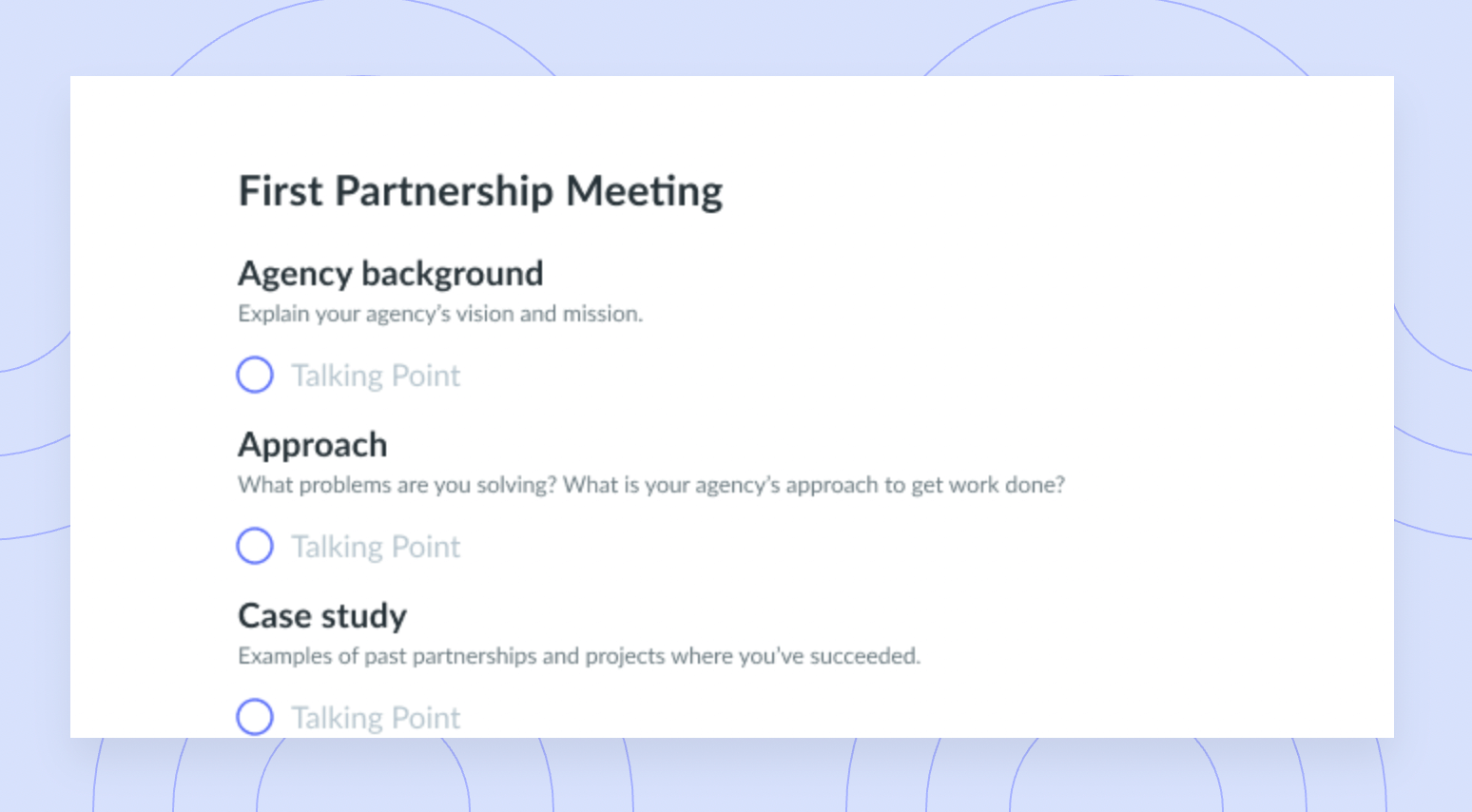How to Reschedule a Meeting: Tips and Examples for 2024
Rescheduling a meeting is totally okay as long as you let all attendees know via a clear, well-worded email.
It happens—you book a meeting only to realize you have other obligations or that the most important attendees won’t be available. Rescheduling is totally okay in these situations or whenever a meeting you’d had big plans for isn’t coming together as you’d hoped. Well, more accurately, it’s okay as long as you let everyone know—and do it the right way.
The most effective way to reschedule a meeting is by email. Below, learn how to write an email to reschedule a meeting, including what to say and how to be sure your team has seen it.
- 5 reasons to reschedule a meeting
- How to send an email to reschedule a meeting
- Best practices for sending an email to reschedule a meeting
- Email templates to reschedule a meeting
5 reasons to reschedule a meeting
When any of the below happen, it might be time to send that reschedule-a-meeting email.
- You’ve double-booked. Since you can’t be in two places at once, choose one of your obligations to reschedule.
- Your most important attendees can’t make it. Your meeting won’t be as effective without your core contributors in the room.
- You just aren’t prepared. Although AI-generated meeting agendas take much of the prep work out of meetings, sometimes you just aren’t ready for your next team gathering. In that case, send a reschedule-a-meeting email and find a time when you’ll be fully good to go.
- You have an emergency. As great as meetings are, even if you love your team and your job, urgent personal matters come first.
- You’re facing technical issues. In the extremely rare case that your meeting management software or slideshow technology isn’t working, find a new meeting time.

Let Fellow cancel unproductive meetings for you
Meeting overload is derailing your productivity. Use Fellow – the all-in-one AI meeting transcription and management software – to automatically cancel or suggest rescheduling meetings without an agenda, freeing up your time for more important tasks. Sign up for free and get 300 FREE minutes of AI transcriptions today.

How to send an email to reschedule a meeting
Below are the key steps in how to write an email to reschedule a meeting, including the proper wording to reschedule a meeting.
- Add a clear subject line
- Begin with a greeting
- Explain that you want to reschedule the meeting
- Propose a new date and time
- Express appreciation
- Ask for a confirmation
Add a clear subject line
Using effective wording to reschedule a meeting starts before your attendees even open the email. Namely, your reschedule-a-meeting email should arrive at your attendees’ email addresses with a clear, concise subject line.
This can be as simple as “rescheduling our [date] [time] meeting,” but you can add more too. For clients or vendors, a subject line such as “[company] – [date] [time] meeting – rescheduling” makes sure your recipients understand the exact meeting in question. On that note, for meetings with newer professional connections, adding your name in the subject line can make for an especially clear ask.
Begin with a greeting
With fellow team members whom you know well, you might sometimes dive right into your email without a “Hi” at the top. This, though, isn’t appropriate wording to reschedule a meeting—for rescheduling, a greeting is always necessary.
Your greeting can be as simple as “Hi [name]” for a one-on-one meeting or “Hi [names]” for a small group meeting. If you’re writing to a larger group, “Hi all” should do the trick. “Hello” is an acceptable substitute for “Hi” if you’re reaching out formally or to contacts whom you don’t know as well yet. Meeting rescheduling emails, though, probably aren’t the place for a “hey.”
Explain that you want to reschedule the meeting
In just a sentence—two at most—clearly state that you’d like to reschedule your meeting. It’s optional to state why, and your best judgment can probably tell you whether that’s appropriate. Two examples of sentences that could work here include:
- I’d like to reschedule our meeting currently scheduled for [day], [date], at [time].
- I’ve had a personal matter come up that conflicts with our meeting. Can we reschedule for [day], [date], at [time]?
Consider whether you prefer a sentence or a question for making your request. A question can suggest that rescheduling is optional, whereas a sentence is more authoritative and might make your ask seem more like a gentle demand.
Propose a new date and time
It’s not a complete rescheduling request without a new date and time for your meeting. Immediately follow your request to reschedule with a clearly stated date and time that fits your schedule. This could look like:
- Are you available on [day], [date], at [time]?
- I’m available on [day], [date], at [time] if that works for you.
From there, all that your meeting attendees need to do is glance at their calendars. If they’re available, they’ll let you know, and you’ll have a new meeting time on the books.
Express appreciation
You should express appreciation in your meeting rescheduling email both in the email itself and via your sign-off. This step is important—showing gratitude acknowledges that moving a meeting is always an inconvenience for other attendees, even if just a minor hassle. Here’s an example of expressing appreciation in a meeting rescheduling email:
Thank you sincerely for accommodating this request.
Best regards,
[Your name]
Ask for a confirmation
Before you express appreciation, ask your recipients to verify that they’ve received your email and that the new meeting time works for them. This way, you increase the likelihood of hearing back from everyone in your group and getting clear responses to your rescheduling request. Some ways to ask for confirmation include:
- Can you please confirm that you’ve received this email and that you’re available at the proposed new time and date?
- Please confirm receipt of this email and that you’re available at the newly proposed date and time.
Best practices for sending an email to reschedule a meeting
Now that you know how to write an email to reschedule a meeting, you’re ready to learn some additional meeting rescheduling best practices.
- Be timely in communicating
- Apologize for any inconvenience
- Provide clear information
- Keep it brief
- Follow up (if there’s no response)
Be timely in communicating
A last-minute meeting postponement can be especially frustrating for attendees. Maybe they’ve planned their whole day around your meeting, or maybe they’ve really been needing to share their thoughts on the meeting’s subject matter. Timely communications are key to minimizing unhappiness and getting everyone on board with your meeting scheduling request. Send your email the moment you know a change is necessary—the earlier, the better.
Apologize for any inconvenience
You don’t want to become the team member who cried wolf—as in, the person who keeps on rescheduling meetings. If that happens, people might simply stop scheduling meetings with you. A great measure to counteract this is thoroughly apologizing for any inconvenience your meeting rescheduling request is causing. This flows nicely after you express appreciation in your email:
Dear (name),
Thank you sincerely for accommodating this request. I apologize for the inconvenience.
Best regards,
[Your name]
Provide clear information
One of the very best tips for rescheduling a business meeting is to be as clear as possible in everything you write. For starters, your email should directly state when the meeting was originally scheduled for, as well as your ideal new date and time. You might also want to name the meeting’s subject matter and, for clients or vendors, state your name and your organization’s name. Here’s an example:
Hi [client name],
This is [your name] from [organization name]. I’d like to reschedule our meeting currently scheduled for [day], [date], at [time].
Keep it brief
In general, professional emails should be concise and to the point, but this is especially true for meeting rescheduling emails. You’re requesting that people alter their schedules for you, and that’s a big move, so a direct ask is best. Brevity and directness go hand in hand.
Keep your email to just a few lines—the fewer, the better. Write only as much as you need to properly send an email to reschedule a meeting and no more.
Follow up (if there’s no response)
As important as your meeting rescheduling email might be, you’re never guaranteed a response. If you don’t hear back from someone you’ve emailed between when you hit “send” and when your original meeting was set for, follow up. Your follow-up email should be even shorter than your first one—it might look as follows.
Hi [name],
Can you please let me know whether we can reschedule this meeting to [day], [date], at [time]? Thanks in advance, and I apologize again for the inconvenience.
Best regards,
[Your name]
Email templates to reschedule a meeting
- Canceling at the last minute
- Canceling because you’re unexpectedly out of office
- Canceling because of a scheduling conflict
Canceling at the last minute
Try sending an email like this the next time you have to cancel within a few hours of your meeting:
Hi team,
Might it be possible to reschedule today’s meeting to a time and date later this week? I hate to cancel at the last minute, but I’ll be unable to make it at the time we had originally planned, as [reason] has come up.
I apologize for any inconvenience this cancellation may cause. Given the urgency of [project name], I am happy to discuss this over the phone or via Zoom this afternoon and will follow up with a list of deliverables via email.
Thanks very much and talk soon,
[Your name]
Canceling because you’re unexpectedly out of office
You can’t change the weather or avoid sickness, even when it gets in the way of important work commitments. When you have to cancel unexpectedly because you’re away from the office, try sending an email like:
Hello [attendee name],
Due to unforeseen circumstances [or specific reason], I’m emailing to let you know that our meeting scheduled for [time] on [date] must be rescheduled. I apologize for any inconvenience and hope we can schedule a meeting for another date and time.
I am available to meet again at [time] on [date] if this works for you. If not, please let me know your availability or a time and date that best fits your schedule.
Thank you very much! I look forward to connecting with you soon about [reason for meeting].
Sincerely,
[Your name]
Canceling because of a scheduling conflict
We’ve all accidentally scheduled two meetings at once. No matter how organized you are, scheduling conflicts are bound to happen every now and then. Here’s an example of what to email your colleagues when this situation arises:
Good afternoon,
I’m writing to let you know that I will no longer be able to attend our meeting due to unanticipated conflicts in my schedule.
Meeting about [project name or reason for meeting] is important to me and I am available to reschedule to [time] on [date] if this works for you. If not, please specify another time and date this week that best fits your schedule.
Please accept my apologies for the inconvenience.
Thank you and have a great day,
[Your name]
The importance of meeting templates to avoid rescheduling meetings
One of the most common reasons to reschedule a meeting is when the host hasn’t planned a meeting agenda in advance. Avoid the time wasted rescheduling meetings by having a meeting agenda template ready before the meeting takes place.
Check out Fellow’s library of 500+ Meeting Agenda Templates for inspiration!
In the scenario where you must reschedule a meeting because you can’t attend – or if there is a time conflict between attendees – you can try Fellow’s asynchronous meeting templates. Asynchronous meetings allow you to share information in a Fellow note, without the need to connect to a video call.
Try the sales asynchronous meeting template or company-wide asynchronous summary below:
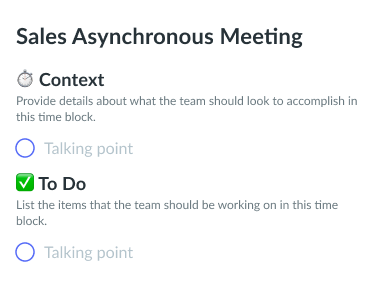
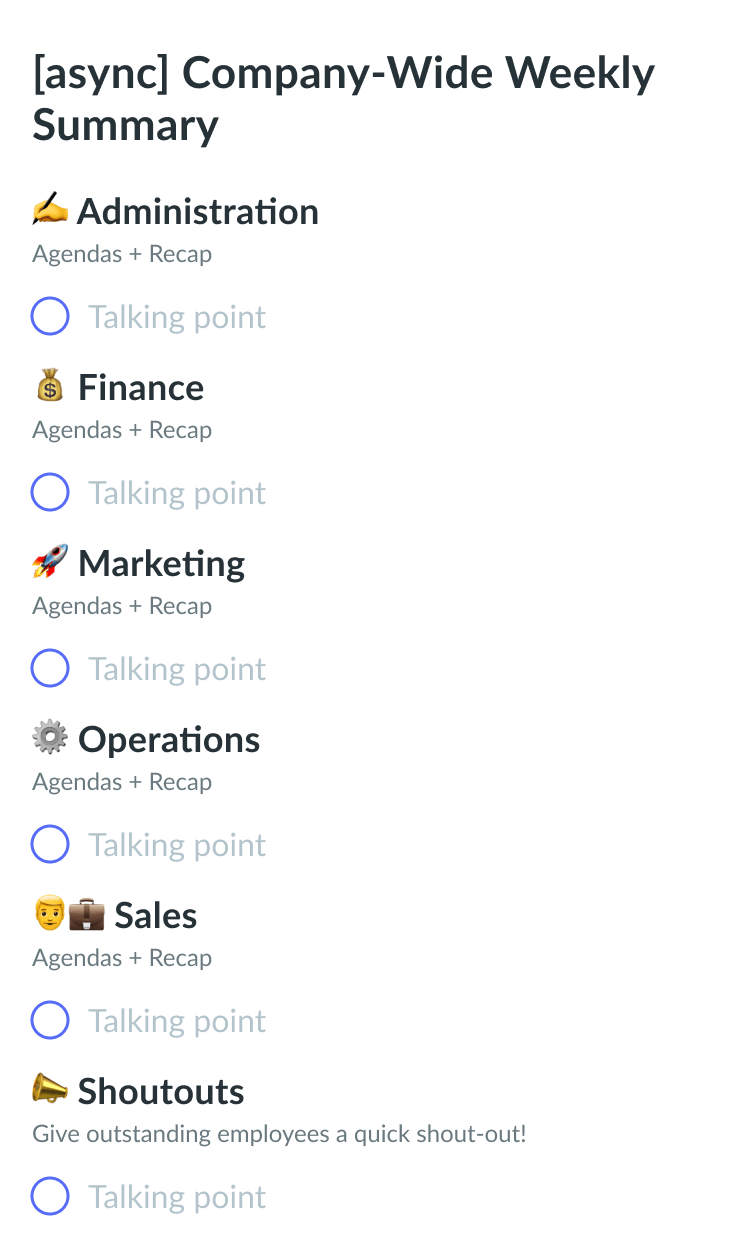
How to use Fellow to automate meeting management
Fellow automatically cancels meetings without an agenda for you, so you don’t have to worry about manually cancelling or rescheduling them! With the “no agenda” automation, Fellow will identify meetings with no agenda and automatically cancel them or give attendees the option to cancel manually, freeing up room in your calendar.
Can’t attend a meeting? No problem. Instead of rescheduling the meeting, you can also invite Fellow’s AI Meeting Copilot to record and transcribe the meeting for you, so you can catch up on the meeting content later!
These are just two of many other features that Fellow offers to make meeting management easier for busy leaders like you. Get started for free today if you want fewer, more effective meetings.
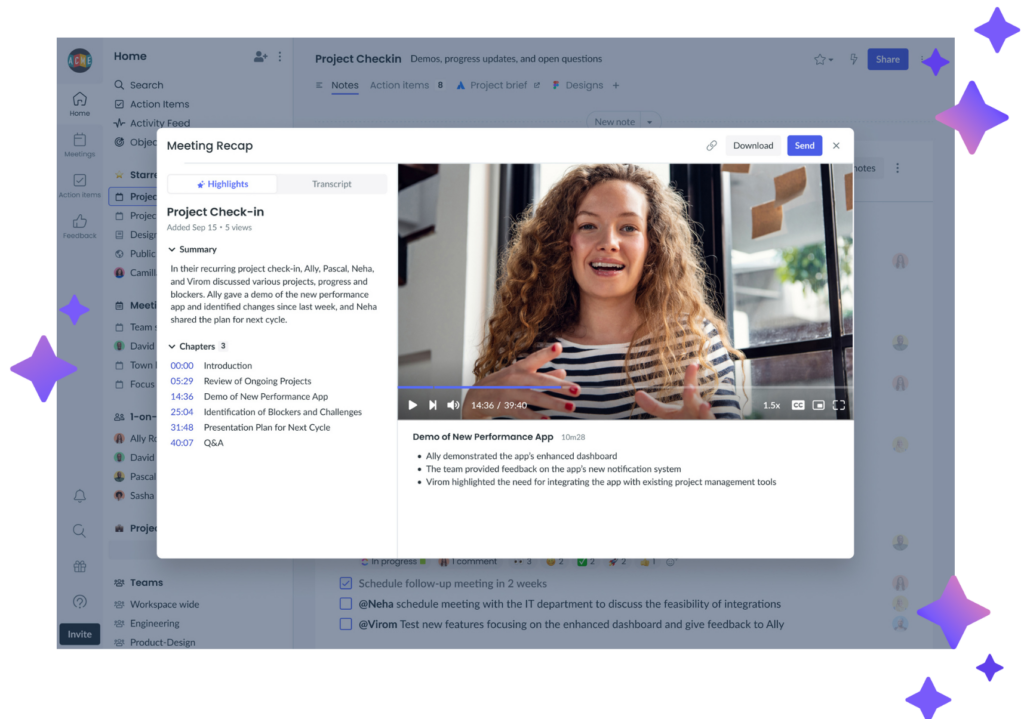
Parting advice
It’s not the best feeling when you have to reschedule a meeting. You might worry that you’re dropping the ball, letting your team down, or upsetting everyone. All these anxieties are understandable, but when you send a well-worded, considerate meeting rescheduling email, chances are everyone will gladly cooperate. From there, you’re all set to have yet another great meeting, just at a new date and time. Don’t forget to use Fellow to generate a meeting agenda, take meeting notes, and follow through on your conversation when you do meet!



![How to Apologize Professionally In an Email [+ Templates]](https://fellow.app/wp-content/uploads/2022/06/How-to-Apologize-In-an-Email-2.jpg)

![What to Do When Your Meeting Attendees Don’t Show Up [+ Free Email Templates]](https://fellow.app/wp-content/uploads/2022/05/When-Meeting-Attendees-Dont-Show-Up-2.jpg)



